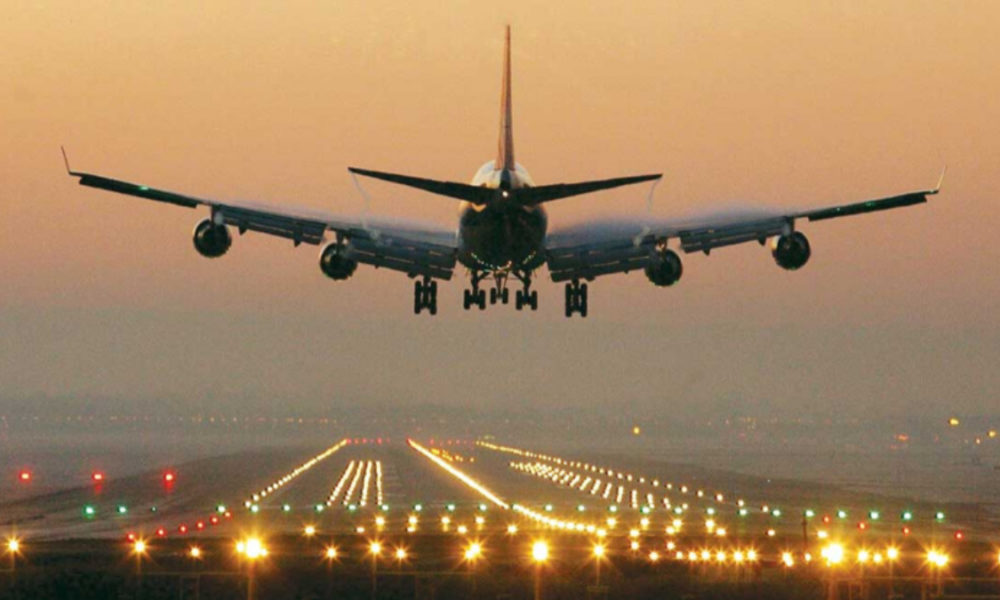The Ministry of Civil Aviation, under MoS Hardeep Puri, has worked hard to revive the aviation sector in India, and has even focussed on trying to revive Air India from the blows to its survival administered during the Manmohan Singh years. Slack oversight by the Civil Aviation ministry in the past resulted in first Kingfisher and later Jet Airways going from health to the ICU and from there to the morgue. A decision seems to have been taken by the Finance Ministry during Modi 1.0 that getting Vijay Mallya to take up long-term residence at a state facility is preferable to accepting the former mogul’s offer of settlement of dues through sale of assets. This line of favouring promoter prison time over certain and swift repayment of over Rs 7,500 crore was perhaps taken in order to serve as a lesson to other promoters. So far Jet Airways promoter Naresh Goyal seems to have followed the example of ICICI Bank’s former superstar Chanda Kochar in avoiding the fate of the very few VIPs who have been given residential privileges (mostly short term) in the facilities now being kept for Vijay Mallya, should the effort at extradition prove a success. However, the just announced move to hike the price of Aviation Turbine Fuel (ATF) by 56% may have ensured that more airlines in India follow in the dismal path of Kingfisher and Jet Airways by shutting down operations. For some reason, petrol and diesel prices were not reduced at the pump despite the sharp fall in global crude prices, making India the only country in the world where consumers have not received any benefit from the collapse of oil prices. However, ATF prices were reduced to reflect more closely the fall in crude oil prices, and were last fixed on 16 May at Rs 64,000 per kilolitre. The lower prices were in force at a time when almost no aircraft was in the sky, with airlines having to keep their flights idle because of the lockdown which began on 24 March 2020. Just when airlines are being permitted to operate their fleets with many restrictions, ATF prices have been ratcheted upwards.
Should the prices of petrol and diesel also have been slashed in the past, the move would have served as a dampener on inflation and a boost to growth. Instead, duties were raised rather than lowered to reflect market conditions, and now ATF has gone the way of other petroleum-based fuel. Given that 45% or more of the total operating cost of an airline consists of expenditure on ATF, a hike as steep as 56% is almost certain to cripple carriers. Most are on the margin of viability, and are likely to tip over into the ICU as a consequence of a decision that fits a pattern of decisions taken since the Chidambaram era of seeking to take out as much revenue as possible from an existing source rather than fix rates at levels that will promote the growth that PM Modi is calling for in morale-boosting speeches across the country. The PMO and the Civil Aviation Ministry need to reverse a decision that would have had a crippling effect even in the best of times. As citizens can testify, these are not the best of times for jobs and incomes.
Another example of the fixation on unsustainably high rates are the initial rates fixed by North Block in the GST schema, which itself is too complex except to be understood by a battery of chartered accountants and lawyers when it ought to have been “saral” enough for hundreds of thousands of small businesses to grasp and to comply with. Modi 2.0 has moved substantially in eliminating numerous policy errors committed by North Block during the Chidambaram years, but for each forward step, some segment of the bureaucracy or the other takes a leap backwards, as with the ATF hike. Given the parlous state of the aviation sector in India, it is difficult to comprehend the logic behind such moves. Taxes cannot be paid by entities that lose revenue, as has been seen during the period after Lockdown 1.0, when GST collections have fallen by 80% and state tax revenues by 60%, much more than the falls registered in other major economies. The expectation of those eager to discredit PM Modi (who has reformed substantial segments of the economy, as pointed out by The Sunday Guardian on 31 May) is that this and the next month will see further declines in economic activity, so that by 15 August the country will witness a mood among the people that would be less than cheerful. Planning is ongoing for “spontaneous” manifestations of public discontent by that date. Their confidence in future success is based on the belief that the implementation of PM Modi’s instructions through the bureaucracy will fall far short of Modi’s expectations.
On the urging of the Civil Aviation Ministry, airlines in India had agreed to freeze fares for the next three months from 1 June. This step was taken by them without any warning from North Block or the Petroleum Ministry that ATF prices would be raised steeply almost the very next day. The PMO needs to step in to ensure that India still has an airline industry in three months, else otherwise maximum two or more likely just one private airline in India will survive the shock therapy administered by the unexpected and unwarranted ATF price increase. Whether ATF or direct taxes, whether GST or other levies, lower rates will promote growth and therefore more revenue, while high rates will retard the recovery the PM has predicted in his inspirational speech to the CII on 2 June.







